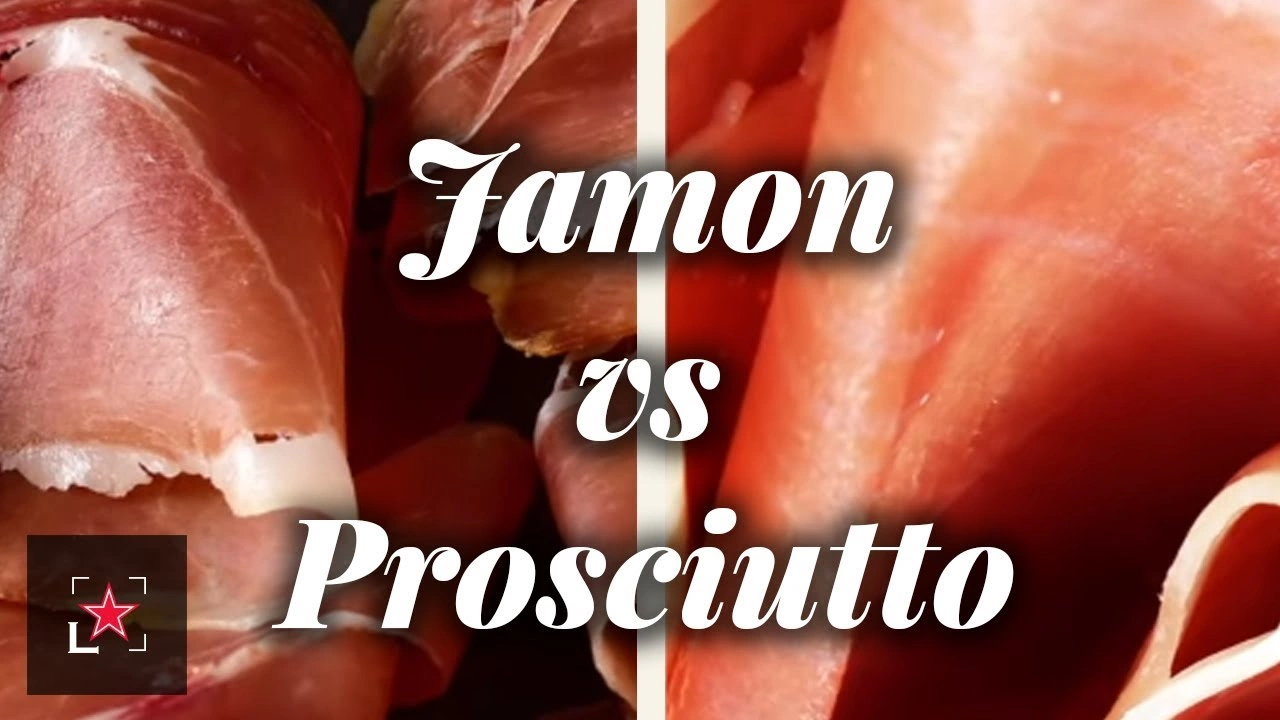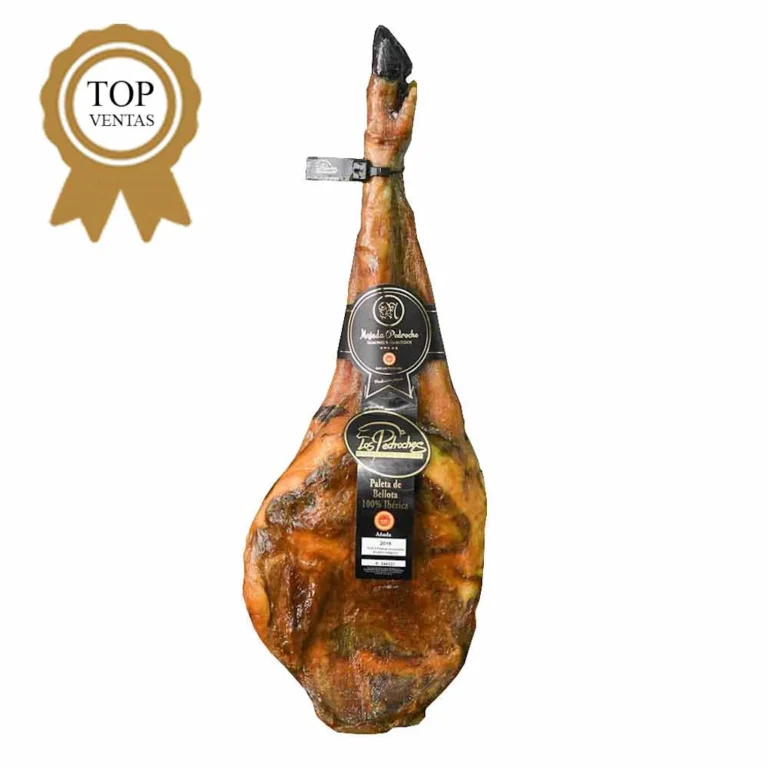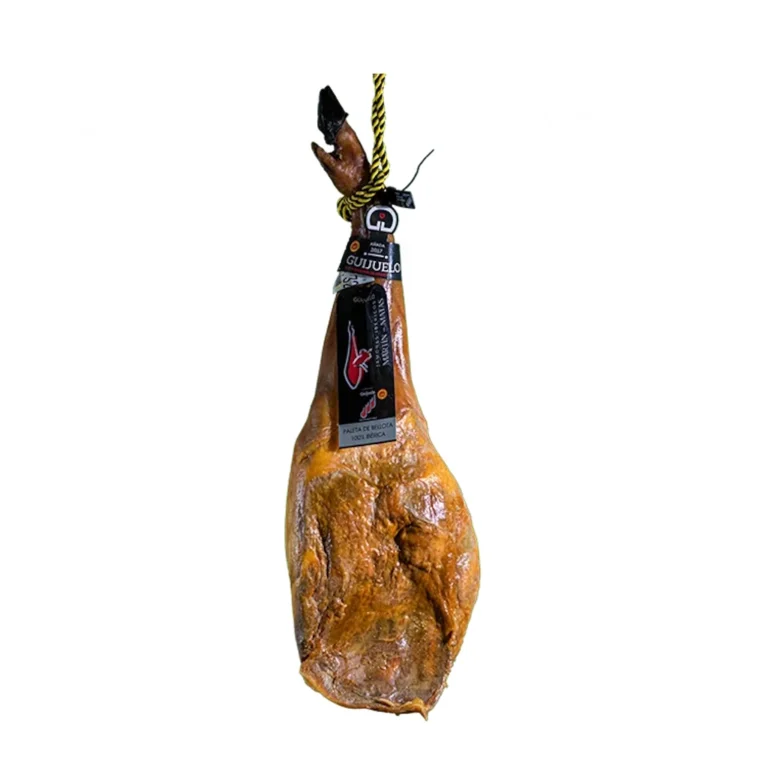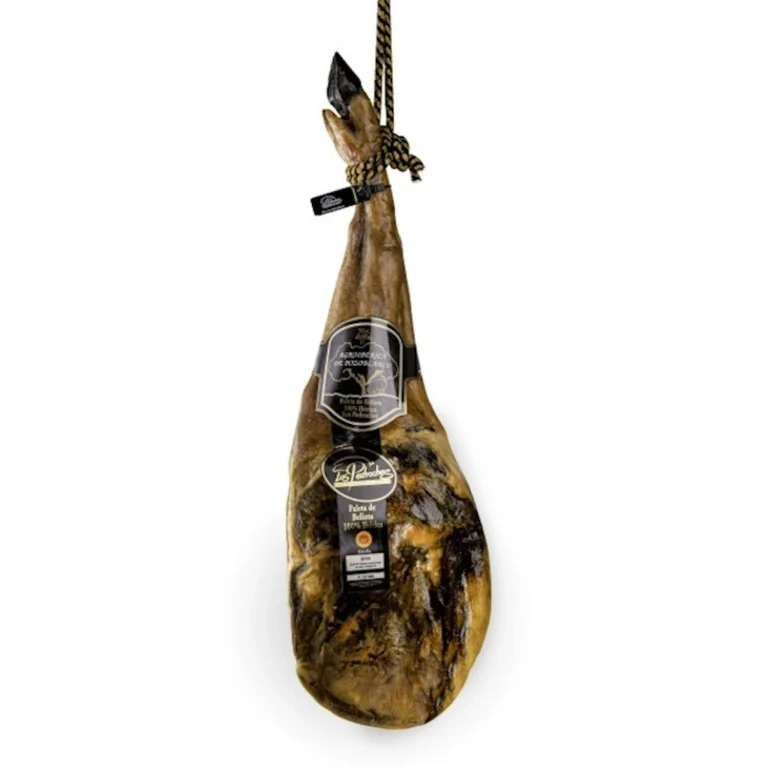Iberian Ham vs Italian Prosciutto
- Aroma and Flavor, Brands
Indice

Iberian Ham vs. Italian Prosciutto: A Duel of Delicatessens with Flavor and Tradition
Iberian ham and Italian prosciutto are two of the most prestigious cured meats in the world, each with a rich history and a distinctive flavor that reflects its origin and production process. Although both share excellence as a common denominator, the differences between Iberian ham and Italian prosciutto are notable and deserve to be explored by lovers of good food.
Origin and Breed of the Pig: The Basis of Uniqueness
One of the fundamental differences between Iberian ham and Italian prosciutto lies in the breed of pig they come from. Iberian ham is made exclusively from the Iberian pig, a breed native to the Iberian Peninsula, known for its unique ability to infiltrate fat into the muscle, giving it its characteristic marbling and a deep, lingering flavor. In contrast, Italian prosciutto is generally produced from white breed pigs, with less intramuscular fat infiltration, resulting in leaner meat with a more delicate flavor.
Feeding and Rearing: A World of Flavors
The pigs’ diet and rearing system are crucial factors that differentiate Iberian ham from Italian prosciutto. In Spain, especially in the case of Iberian acorn-fed ham, Iberian pigs are raised free-range in the pastures, feeding on acorns during the montanera (fall and winter). This natural diet, rich in oleic acid, and the animal’s constant exercise give Iberian ham unique nuances: sweet notes, umami, and an unmistakable aroma. On the other hand, pigs destined for Italian prosciutto production are typically raised on farms and fed grains and whey. Although this diet also influences flavor, it is less complex and varied than a diet based on acorns.
Curing Process: Times and Terroirs
The salting and curing process is another significant difference between Iberian ham and Italian prosciutto. Iberian ham undergoes a curing process that can range from 24 to 48 months, depending on the quality (cebo, cebo de campo, bellota). The salting process is relatively short, followed by a slow drying process in natural drying rooms and cellars, where climatic conditions and the native microbial flora play a fundamental role in the development of its flavor and aroma. Italian prosciutto, on the other hand, is cured for a period ranging from 12 to 24 months. The curing process is typically longer than that of Iberian prosciutto, and the curing environment is more controlled, with fewer climatic variations.
Flavor and Texture: A Comparative Tasting
Differences in breed, diet, and curing process translate into distinct flavor profiles and textures between Iberian ham and Italian prosciutto. Iberian ham is characterized by its intense, complex, and persistent flavor, with notes that vary depending on its diet (acorn-fed, field-fed, or cebo). Its texture is soft, creamy, and melts in the mouth thanks to the infiltration of fat. Italian prosciutto, on the other hand, has a more delicate, sweet, and slightly salty flavor, with a firmer texture and less intramuscular fat.
Price and Perception: A Gourmet Product vs. A Delicatessen
Price also reflects the differences between Iberian ham and Italian prosciutto. Generally, Iberian ham, especially acorn-fed ham, tends to be more expensive due to the exclusivity of the breed, the free-range farming system, and the long curing process. Italian prosciutto, although also a high-quality product, is usually more affordable.
Conclusion: Two Charcuterie Gems with Their Own Personality
In the comparison between Iberian ham and Italian prosciutto, there is no clear winner. Both are exceptional products that represent the tradition and mastery of their respective culinary cultures. The differences in pig breed, feed, curing, flavor, and texture offer unique sensory experiences. The choice between one or the other will depend on personal taste, the occasion, and the desired pairing. The important thing is to appreciate the uniqueness of each and enjoy the richness they bring to the world of high-quality charcuterie.
Nota importante: aceitedelcampo.com promueve el consumo del aceite de oliva virgen extra por sus cualidades culinarias y beneficios para la salud. No obstante, no debe sustituirse ningún medicamento o tratamiento actual sin la orientación de un profesional de la salud.
Productos que te pueden interesar
140,00 € – 160,00 €Price range: 140,00 € through 160,00 €
7,49 € – 165,00 €Price range: 7,49 € through 165,00 €
16,50 € – 320,00 €Price range: 16,50 € through 320,00 €



